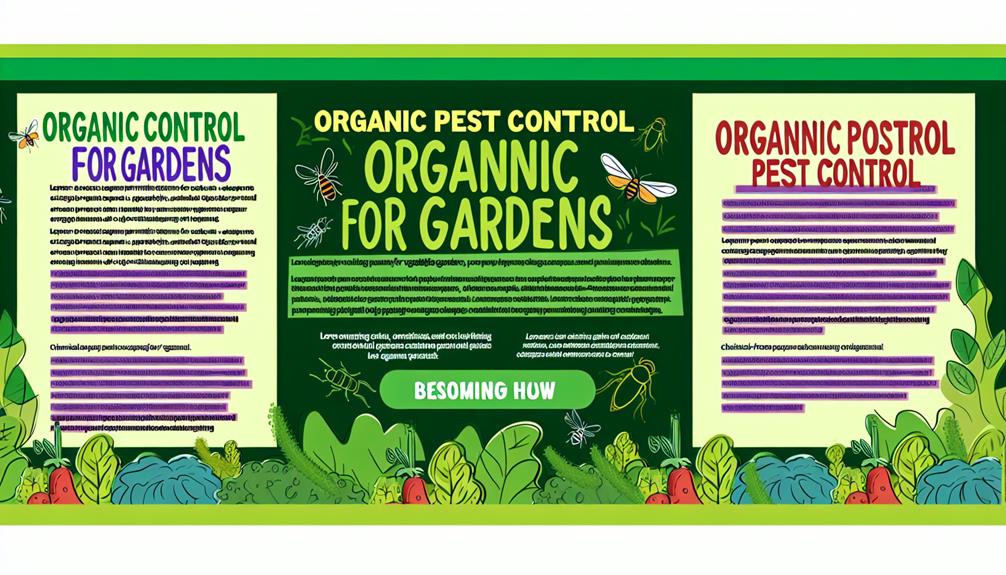You know, choosing the right keywords for your pest control PPC campaigns is like laying the foundation for a sturdy house – it’s essential. But why exactly are keywords so crucial in this context?
Well, let’s just say that without the right keywords, your PPC campaigns could end up being like a ship without a compass – directionless and ultimately ineffective.
So, stick around to find out how utilizing the right keywords can make all the difference in the success of your pest control PPC campaigns.
Table of Contents
ToggleKey Takeaways
- Effective keyword selection is crucial for attracting potential customers in the pest control industry.
- High-intent keywords with clear buying intent should be targeted for higher conversion rates.
- Utilizing long-tail keywords can help with niche targeting and reaching a specific audience.
- Implementing negative keywords can optimize cost efficiency by preventing ads from showing for irrelevant searches.
Understanding Pest Control Keyword Research

To effectively conduct pest control keyword research, start by identifying the specific pests that are relevant to your target audience and their associated search terms. Understanding the search behavior of your potential customers is crucial for a successful pest control PPC campaign.
Conducting a competitor analysis can provide valuable insights into which keywords are driving traffic to your competitors’ websites. By evaluating their strategies, you can refine your own keyword selection and potentially gain a competitive edge.
Moreover, paying attention to local search trends is essential for targeting the right audience. Localized keywords such as ‘pest control services in [City Name]’ or ‘exterminator near me’ can significantly impact the effectiveness of your PPC campaign. By understanding the unique search patterns of your local market, you can tailor your keyword selection to attract potential customers in your area.
Identifying High-Intent Keywords for PPC
When identifying high-intent keywords for your PPC campaign, focus on understanding the specific search queries that indicate strong purchase intent from potential customers. Keyword intent plays a crucial role in determining the likelihood of conversion.
By targeting keywords with clear buying intent, such as ‘pest control services near me’ or ’emergency pest exterminator,’ you can increase the chances of capturing leads that are ready to engage your services.
Understanding the search volume of these high-intent keywords is equally important. While high search volume may seem appealing, it’s essential to prioritize keywords that not only demonstrate intent but also align with your pest control business. Look for a balance between search volume and relevance to ensure that you attract the right audience.
Additionally, consider using long-tail keywords that are more specific to certain pest control services, as they often indicate stronger intent and can result in higher conversion rates.
Utilizing Long-Tail Keywords for Niche Targeting

When targeting niche audiences for your pest control business, consider utilizing long-tail keywords to improve your campaign’s precision and effectiveness. Long-tail keyword strategies allow you to specifically target potential customers who are searching for highly specific pest control services in their local area.
Here’s how to effectively utilize long-tail keywords for niche targeting:
- Increased Relevance: Long-tail keywords enable you to tailor your ad campaigns to match the exact services or solutions your niche audience is seeking, thereby increasing the relevance of your ads.
- Reduced Competition: By targeting long-tail keywords, you can reduce competition from larger companies and focus on capturing the attention of potential customers looking for specialized local pest control services.
- Higher Conversion Rates: Utilizing long-tail keywords for local pest control targeting can lead to higher conversion rates as you’re reaching potential customers who are actively seeking your specific services.
- Improved ROI: Long-tail keyword targeting can lead to a better return on investment as your ads are being shown to individuals who are more likely to convert into customers due to their specific search intent.
Implementing Negative Keywords for Cost Efficiency
Considering the precision and effectiveness of long-tail keywords for niche targeting, you can now optimize cost efficiency in your pest control PPC campaigns by implementing negative keywords. By employing a strategic negative keyword strategy, you can prevent your ads from showing for irrelevant searches, thus saving your budget for more relevant clicks.
For instance, if you specialize in termite control, you may want to add ‘free’ as a negative keyword to avoid paying for clicks from people looking for free termite control services. This cost-effective PPC optimization method ensures that your ads are only displayed to users who are actively seeking the pest control services you offer, ultimately leading to higher conversion rates and a better return on investment.
Negative keywords also play a crucial role in refining your audience targeting and minimizing wasted ad spend. Through the exclusion of irrelevant search terms, you can enhance the overall performance of your PPC campaigns and drive qualified traffic to your website. This focused approach not only saves money but also increases the likelihood of reaching potential customers who are genuinely interested in your pest control services.
Monitoring and Adjusting Keyword Performance
To ensure the effectiveness of your pest control PPC campaigns, consistently monitor and adjust keyword performance to maximize results and minimize wasted ad spend. Keyword performance analysis is crucial for optimizing your PPC campaigns.
Adapting keyword strategy based on real-time data can significantly improve the overall performance of your ads. Here are some key steps to effectively monitor and adjust keyword performance:
- Regularly review your keyword performance metrics, such as click-through rate (CTR), conversion rate, and cost per click (CPC), to identify top-performing and underperforming keywords.
- Utilize analytics tools to gain insights into user behavior and keyword effectiveness, allowing you to make informed decisions about which keywords to prioritize and which ones to eliminate or modify.
- Continuously test and experiment with new keywords to expand your reach and attract relevant traffic while retiring or refining underperforming keywords.
- Adjust your bidding strategy based on keyword performance, allocating more budget to high-performing keywords and optimizing your ad placements for maximum impact.
Consistently monitoring and adjusting keyword performance is essential for maintaining the efficiency and effectiveness of your pest control PPC campaigns.





